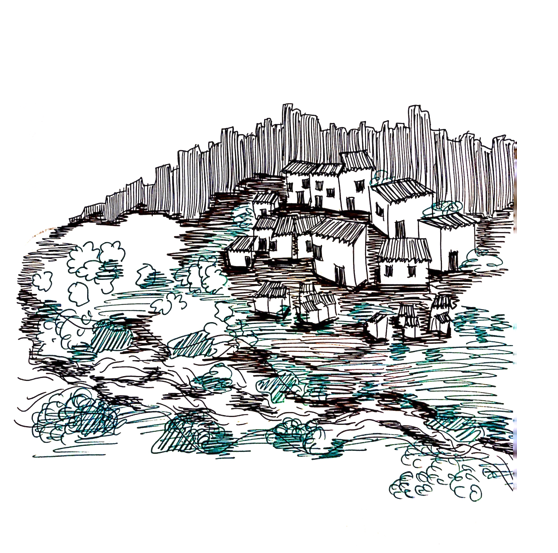SAFER CITIES – NEIGHBORHOODS FOR ALL peer learning webinars
02.07.2024

The Safer Cities initiative, is a voluntary collaboration between UN-Habitat, UCLG, Habitat Norway, and VibeLab, that aims to share knowledge, foster mutual learning, and promote integrated solutions for safer cities. The initiative adheres to the systemwide UN Safer Cities guidelines which was published in 2019 by UN-Habitat. . The system-wide guideline is an operational and normative UN document followed by various agencies to create secure, healthy, and inclusive urban environments. For UCLG, the Safer Cities initiative deals with the challenges expressed by members related to violence, peace, gender, and community collaboration.
In 2023, The Safer Cities Initiative, through its series of insightful webinars, successfully facilitated a global exchange of knowledge and strategies aimed at creating secure and inclusive urban environments. The four partner organizations put their specific perspectives together and created a series of Peer Learning events, with a strong emphasis on innovative implementation practices. From addressing local government roles and civil society and community initiatives to exploring innovative solutions for women’s safety and youth engagement, also throwing light to the nightime governance; it became clear that safety is deeply rooted in local governance and collaboration with communities.
The lessons following the 3 learning events touch various themes, in particular: safety, prevention, and fight against violence, as well as more caring to provide wellbeing to vulnerable citizens to feel safe, remain a priority of local and regional governments.
What has been done?
The first kick-off webinar was on 30th of october and served as a general introduction to the upcoming events and planned activities among partners. The first peer review event then took place on December 12th, 2023.
After a short introduction by Juma Assiago from UN Habitat, an introductory keynote on “Unsafe and Unsecure Cities: Global Trends and Challenges. How to Respond?” followed.
The input of the former head of the police OSLO, Erling Børstad on community policing, focused on Norwegian experiences and trends. He showed the opportunities of municipal police supporting communities and explained how they are valued as a public service.
The main activity of the event was a Peer Review that was an interactive learning exercise. Supported by a Mural board, five groups played out typical situations of conflict) for qualitative discussion: neighborhoods, public space, youth/policing, mobility and gender equality, and nighttime. Each group contrasted their findings with case studies from different locations such as Medellín, Durban, Toronto, India, and Berlin. The goal of this interactive session was drawing on real-world examples to generate actionable insights and strategies that are applicable to other situations.
The second webinar, titled “Nighttime Governance – Ensuring Safe Cities for Women and Girls”, occurred on March 6th, 2024, and focused on creating safer urban environments for women and girls during nighttime hours. This session explored municipal safety policies, civil society initiatives, and innovative tools, featuring promising practices from Bristol, Nairobi, Banjul, Durban, and São Paulo. Moderated by Diana Raiselis from Vibelab, the discussion showed the city’s need for governance during the night time, that is far beyond control functions; night governance is also about access to public space, transport, and leisure activities in vibrant neighborhoods that make cities attractive.
Highlights included discussions on safety audit tools and insights from global cities that have implemented effective nighttime safety policies or dedicated night mayors.
The third event took place on June 4th, 2024. It was introduced by Diana Huynh from Habitat Norway, highlighting the diversity of Civil society organizations and initiatives fostering safer cities. Sara Hoeflich from UCLG underscored that “local governments are the first layer of the neighborhood and the first that we can work with to create safer cities but without active civil society not much will happen.” The session began with an interactive exercise to understand participants’ backgrounds and key safety needs from civil society organizations. Also this session allowed diverse inputs of regions, such as FEMUM – Smart & Sustainable Cities PERU, which focused on twenty years of youth engagement in post-conflict cities and efforts to combat the culture of narcotics and violence. From Cairo, Prof. Azza Sirry shared insights on creating women-friendly cities and highlighted the importance of transitioning from pilot projects to sustainable national policy making. Patricia Kennie from Norway presented how the Akerselva Paddling Club promotes youth inclusion and safety in inner-city Oslo, while Stine Kronsted Pedersen showed findings of a grassroots-led river rehabilitation in Kenya and the need for articulation between communities and local government.
A very innovative experience was provided from Oslo, where an initiative of neighborhood mothers with immigration backgrounds helping each other went to scale and now counts 200 mothers speaking 24 languages. Initially working as volunteers, they are now providing services sponsored by the municipality. One of the founders of parenting in safer communities, Raisa Rehman, explained the evolution of a community network to support socially isolated women who had given birth.
The third webinar concluded with national and regional policy examples on fostering socially inclusive cities through national or regional policy making. Mats Stjernberg from Nordregio was contributing with a Nordic perspective that shows how the national safety and inclusion policy triggers down when it comes to urban development.
Where are we now?
The culmination of these efforts will be presented with a 4th learning session at the World Urban Forum (WUF12) in November, 2024. In this session, participants and partners will gather again to share their lessons and visions for the future, continuing the journey towards safer cities worldwide. See you in Cairo!
All the recordings are available here:
Neighbourhoods for All: Kick-off webinar for UN Safer Cities Global Peer Review (30.10.23)
Webinar #1 NEIGHBOURHOODS FOR ALL Safer Cities Global Peer Review Process
Webinar #2 NEIGHBOURHOODS FOR ALL Safer Cities Global Peer Review Process: Nighttime governance